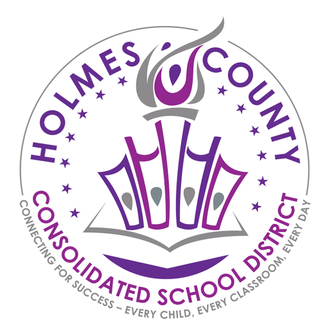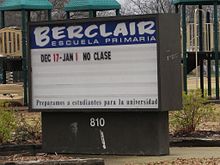
Shelby County is the westernmost county in the U.S. state of Tennessee. As of the 2020 census, the population was 929,744. It is the largest of the state's 95 counties, both in terms of population and geographic area. Its county seat is Memphis, a port on the Mississippi River and the second most populous city in the state. The county was named for Governor Isaac Shelby (1750–1826) of Kentucky. It is one of only two remaining counties in Tennessee with a majority African American population, along with Haywood County. Shelby County is part of the Memphis, TN–MS–AR Metropolitan Statistical Area. It is bordered on the west by the Mississippi River. Located within the Mississippi Delta, the county was developed as a center of cotton plantations in the antebellum era, and cotton continued as an important commodity crop well into the 20th century. The economy has become more diversified.

Bartlett is a city in Shelby County, Tennessee, United States. The population was 57,786 at the 2020 U.S. Census.

Collierville is a town in Shelby County, Tennessee, United States, and a suburb located in the Memphis metropolitan area. With a population of 51,324 in the 2020 census, Collierville is the third largest municipality in the county after Memphis and Bartlett. It is home to the Carriage Crossing shopping mall and is served by Collierville Schools.

Germantown is a city in Shelby County, Tennessee, United States. The population was 41,333 at the 2020 census. It was given a Malcolm Baldrige National Quality Award for Performance Excellence in 2019.

Downtown Memphis, Tennessee is the central business district of Memphis, Tennessee, and is located along the Mississippi River between Interstate 40 to the north, Interstate 55 to the south, and Interstate 240 to the east, where it abuts Midtown Memphis.

Frayser is a neighborhood on the north side of Memphis, Tennessee, United States. It is named after Memphis physician Dr. J Frayser, who owned a summer home near the railroad. Frayser's boundaries are the Wolf River to the south, the Mississippi River to the west, the Loosahatchie River to the north, and ICRR tracks to the east. The population of Frayser is approximately 45,000.

Central Gardens is a historic Memphis neighborhood in Midtown.

Cordova High School is a public high school located in Cordova, Tennessee, United States, within unincorporated Shelby County, to the east of the city of Memphis, and is also part of the Memphis-Shelby County Schools district.

Raleigh is a community in north-central Memphis, Tennessee, United States, named for a formerly incorporated town that used to be at its center. Raleigh is bordered on the west by the community of Frayser, on the east by the incorporated suburb of Bartlett, on the south by the Wolf River and Interstate 40, and on the north by the Memphis city limits. The former town of Raleigh was the first county seat of Shelby County, Tennessee.

Memphis-Shelby County Schools(MSCS), previously known as Shelby County Schools (SCS), is a public school district that serves the city of Memphis, Tennessee, United States, as well as most of the unincorporated areas of Shelby County. MSCS is the 23rd largest school district in the United States and the largest in Tennessee.

East Memphis is a region of Memphis, Tennessee with several defined and informal subdivisions and neighborhoods such as Colonial Acres, White Station-Yates, Sherwood Forest, Normal Station, High Point Terrace, Belle Meade, Normandy Meadows, St. Nick, Pleasant Acres, Balmoral, and Ridgeway. The general boundaries are informal:

Craigmont High School is a public high school located in Memphis, Tennessee, in the Raleigh community. It was part of the Memphis City Schools district before consolidation with the Shelby County Schools district, beginning with the 2013-14 school year. It is home to the city's only International Studies Program. The school first opened in 1974 for only 7th through 10th grade students, but each subsequent year, added a grade higher. The first graduating class was the class of 1976. In 2001, the 7th and 8th grade students, along with the 6th grade students from Brownsville Road Optional Elementary School, formed the new Craigmont Middle School at the opposite end of the same block. This was done both to help overcrowding and to reduce the extreme age and maturity gaps present in a single building. Before the physical split between junior and senior high schools, junior high students remain relegated to the north end of the building for classes while those senior high students attended the majority of their classes in the south end of the school building. Beginning with the 1991-1992 school year, students from grade 9 would become a part of the senior high section of the building. Former principal, Dr. Ada Jane Walters, would go on to become the Tennessee State Commissioner of Education.

The Holmes County Consolidated School District (HCCSD), formerly the Holmes County School District, is a public school district based in Lexington, Mississippi (USA). The district covers all of Holmes County, including the City of Durant area previously served by the Durant Public School District. Effective July 1, 2018 the Holmes County and Durant school districts consolidated into the Holmes County Consolidated School District.
Carolyn Jean Chumney is an American lawyer and politician from the U.S. state of Tennessee. She served in the Tennessee House of Representatives from 1991 to 2003. She represented the fifth district on the Memphis, Tennessee City Council from 2004 to 2007. Chumney came in second place in the Democratic primary for Shelby County mayor in 2002, and within 7 points of being elected the first woman Memphis mayor in 2007. Chumney was a leading attorney taking the fight for election security to the U.S. Supreme Court and Congress. She is also the author of "The Arena: One Woman's Story" [Lady Justice Publishing 2021], which has gained national recognition, including First Place At-Large Autobiography, by the National Federation of Press Women. Chumney is now an elected Shelby County Circuit Court Judge and took office on September 1, 2022, after winning the countywide election.
Hyde Park is a neighborhood in the Hollywood community on the north of Memphis, Tennessee.

The history of Memphis, Tennessee and its area began many thousands of years ago with succeeding cultures of indigenous peoples. In the first millennium, it was settled by the Mississippian culture. The Chickasaw Indian tribe emerged about the 17th century, or migrated into the area. The earliest European exploration may have encountered remnants of the Mississippian culture by Spanish explorer Hernando de Soto. Later French explorers led by René-Robert Cavelier, Sieur de La Salle likely encountered the Chickasaw. The city of Memphis was not founded until 1819. The city was named after the ancient capital of Egypt on the Nile River in North Africa.

Cordova is a community in Shelby County, Tennessee, United States. Cordova lies east of Memphis, north of Germantown, south of Bartlett, and northwest of Collierville at an elevation of 361 feet.
The Hughes School District, formerly located in Hughes, Arkansas, United States was a public school district that closed in the summer of 2015 due to declining enrollment.
African Americans are the second largest census "race" category in the state of Tennessee after whites, making up 17% of the state's population in 2010. African Americans arrived in the region prior to statehood. They lived both as slaves and as free citizens with restricted rights up to the Civil War.






















